Ghaziabad: It was a late-evening hotel raid, with multiple targets rounded up and roughed up. The enforcers were grandmothers, grandfathers, mothers, and middle-aged men. The ‘suspects’ were three couples who had checked into two budget hotels in Ghaziabad’s crowded Navyug Market.
The enraged mob’s refrain that September night was that unmarried lovers were “destroying the decent culture” of the area, a cluster of about 75 mostly lower middle-class homes. The couples’ furtive comings and goings—the women often with their faces covered—were said to be ‘leading the youth astray’. Residents alleged Hotel Metro and Hotel Metro-II were fronts for sex work. Police arrived quickly and promised “strict action.” For young couples seeking privacy away from families and society, another safe space became dangerous overnight.
Small, pocket-friendly hotels like these, which don’t insist on overnight stays, have become romance hotspots. But they also walk a thin line between legality and stigma. Even when they follow every rule, they are treated as dens of immorality by residents, shopkeepers, and police.
“They say the women are of bad character and that we shouldn’t give them rooms. But we aren’t doing anything illegal. We take IDs and complete the formalities before handing over keys,” said Deepak, who took over as manager of Hotel Metro after his predecessor quit following the mob attack. It advertises itself as a “tranquil hotel with serene AC rooms available for a peaceful stay”, but footage from that night shows one of the male patrons being slapped on the street as he ran for cover.

Such hotels have mushroomed across India, from Delhi and Ghaziabad to Surat and Patna, with most of their business coming from couples. Once found only near railway stations or airports, small two- and three-star hotels now dot neighbourhoods like Shahdara, Rajouri Garden, Lajpat Nagar and Delhi University’s North Campus.
Popular culture has played an important part in their rise. Jab We Met, where Shahid Kapoor and Kareena Kapoor check into Hotel Decent for a few hours, became cultural shorthand for the tragicomic travails of unmarried couples, from sleazy managers to police raids. It even inspired MakeMyTrip to create an “unmarried couples allowed” filter for hotel bookings. It’s now easy and discreet to book rooms online. Several hotels advertise hourly or six-hour rentals. A couple from the same city would often be turned away due to “no local ID” policies, but many establishments have relaxed that as well.
Budget short-stay hotels are the backbone of an emerging sex culture among Indian youth—in both large cities and small towns. What began as the branded OYO chain over a decade ago turned into nothing short of a revolution for young Indian lovers. The brand has become synonymous with smaller hotels and is used more in a generic sense. But at the same time, community anxieties, local politics, and police action target these hotels as purveyors of a change that Indian society isn’t ready for.
We are doing legal work. They are independent people. If they both are adults and have real IDs then we shouldn’t deny them a room. We have a licence and it gets renewed every year
-Sahil Saini, manager of City Inn, Paharganj
Police and residents often claim short-stay hotels enable crime — from “prostitution” to rape. In Rajkot last month, police advised hotels not to rent out rooms by the hour to prevent “exploitation” of women.
“We have seen many cases of rape and POCSO where the couple had first stayed in a hotel for a few hours. That’s why we’ve asked hotels to tighten checks and verify IDs before giving rooms,” said a senior police officer. He added a caveat, though, that such accusations usually come from irate family members.
“In many situations, young couples travel to a city by bus, spend a few hours in a hotel, and later families file complaints of rape or POCSO. To prevent this, we’ve asked hoteliers to be strict.”
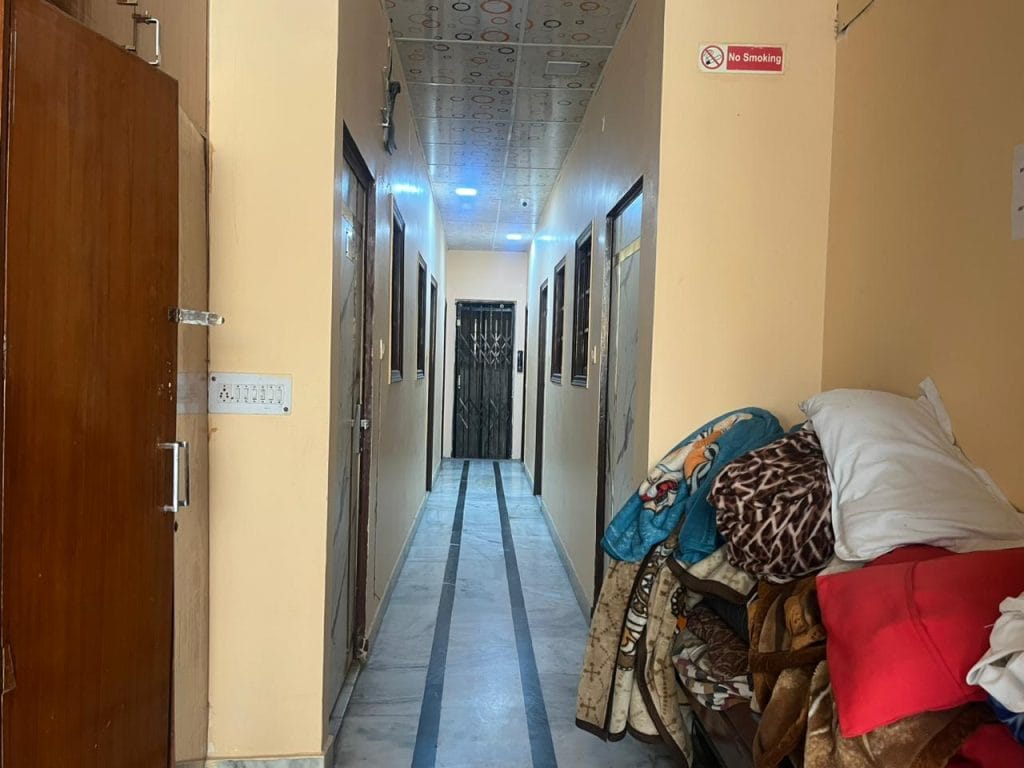
Earlier this year, OYO itself changed its rules in Meerut and said unmarried couples would no longer be allowed to book rooms. Indian youth called it a betrayal.
This hotel room phenomenon hasn’t been an easy journey for owners. They promise privacy but have to ensure ID checks. They have to think of commerce but be mindful of conservative cultural mores.
Licences and CCTV cameras can’t shield them from police scrutiny or neighbourly suspicion.
Also Read: The secret sex life of India’s college students. How they battle campus CCTVs & curfews
Borrowed time, budgets, and bathtubs
Twenty-three-year-old Mahima Dahiya has been in a relationship for a year. It began as a college romance. At first, she and her boyfriend Rahul met in cafes, college lawns, and parks. As things progressed, they borrowed a friend’s flat, but that soon became awkward. So Dahiya asked Rahul to look for a hotel that rented rooms by the hour. They didn’t need an overnight stay, as getting parental permission is rarely easy for young adults in India. Getting away for a few hours during the day is often the only option.
“We found so many options online. We read reviews and picked an affordable two-star hotel in Shahdara. We went there, gave our IDs, filled in all the details. We were there for six hours and gave Rs 800 for an AC room. It wasn’t a bad deal,” said Dahiya, who usually spends this much money even at cafes.
Ninety percent of my customers are couples. Most of them book the rooms on an hourly basis. It’s profitable for me as they stay for a few hours and pay 80 per cent of the full rate
-Mohan Sinha, manager of a budget hotel in Shahdara
The hotel in East Delhi’s Jagat Puri area is about 38 kilometres from her home. She chose a location far enough to avoid bumping into anyone she knew. It’s now a regular haunt for the couple.
“It takes me nearly two hours to reach there but it’s very safe. Now the staff knows us too so there is comfort there,” said Dahiya.
A small flex board announces the hotel, which sits on a narrow street alongside shops and homes. Inside are ten rooms and a compact reception on the first floor. Most bookings come from couples through online platforms.
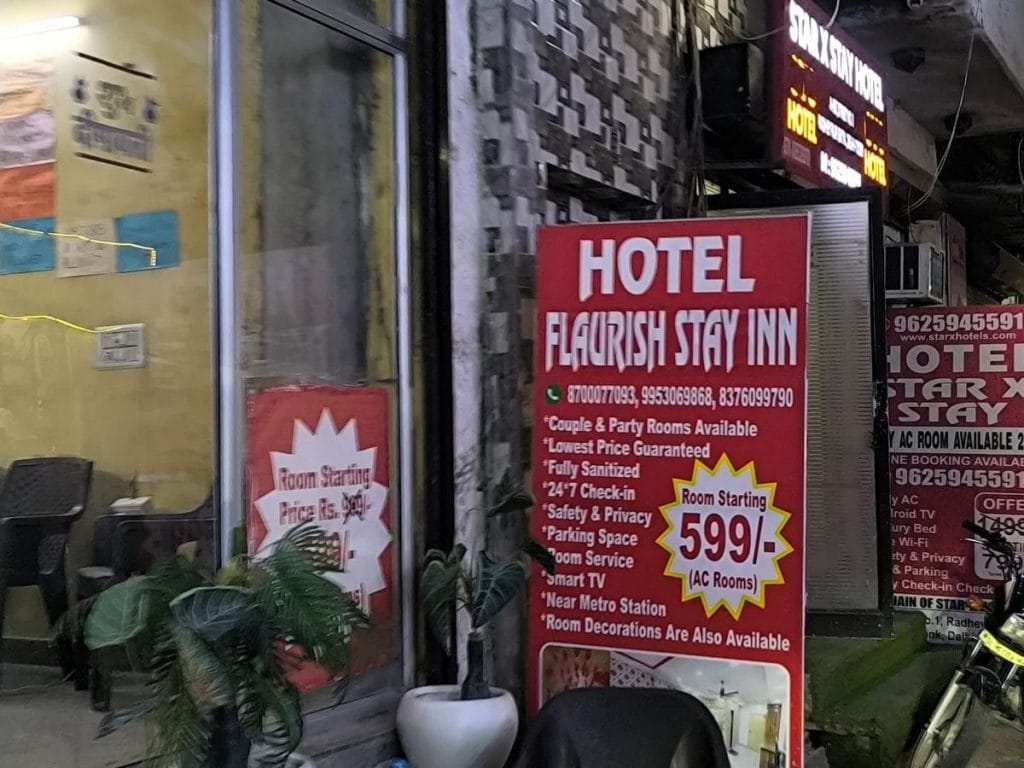
“Ninety percent of my customers are couples. Most of them book the rooms on an hourly basis. It’s profitable for me as they stay for a few hours and pay 80 per cent of the full rate,” said Mohan Sinha, who manages the two-star hotel. “For one day, I charge Rs 1,000. For six to eight hours, the price is Rs 800.”
This business model is thriving from East to West Delhi. The road from Delhi to Ghaziabad is peppered with hoardings promising “AC rooms @399,” “Safety and privacy guaranteed,” and “Fully sanitised couple rooms.”
Sinha’s hotel in Shahdara is in good company. The whole street is plastered with hotel ads aimed at couples. One Hotel Royal Residency promises AC rooms at Rs 599, “lowest price guaranteed, fully sanitized, safety and privacy, room service”. A few metres away, another hotel’s hoarding advertises “couple & party rooms available, near metro station, room decorations also available”.
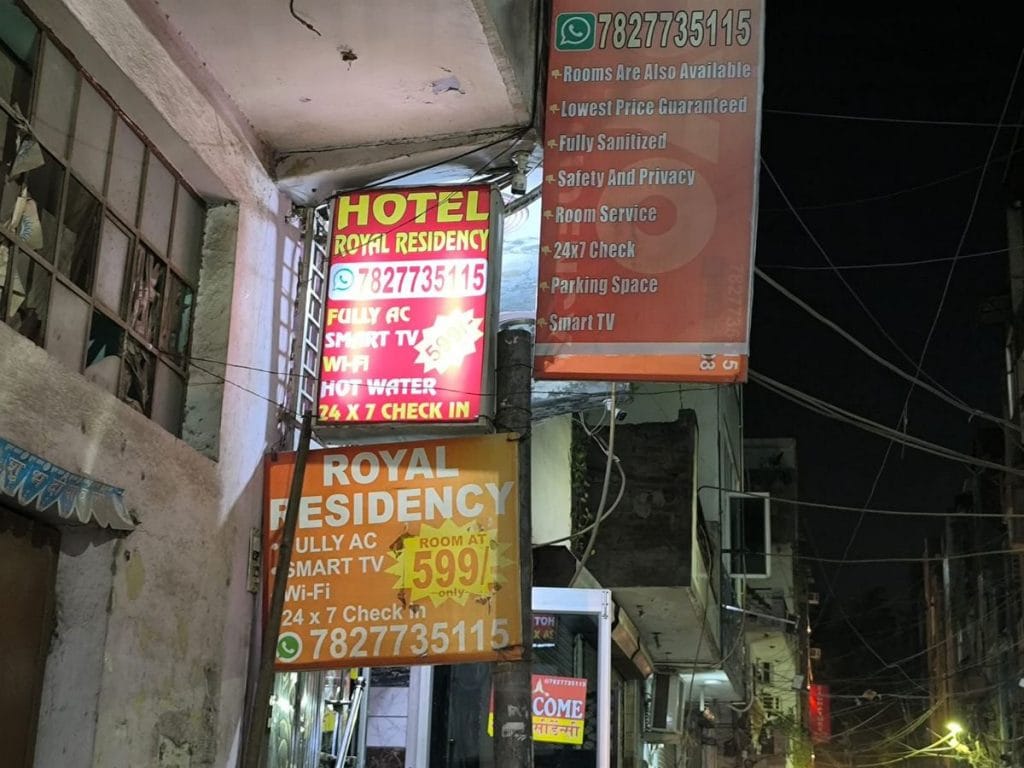
In Central Delhi, Paharganj is the main go-to. Manisha Yadav, who works in a BPO, spends quality time with her boyfriend at a hotel there on weekends. Both live with their parents, so short-stay rooms are their only option. Her main concern, she said, was whether the hotel accepted local IDs—a code for being friendly to unmarried couples.
She and her boyfriend found what they wanted at an assuming hotel marked by a flex board saying ‘Hotel City INN DX’. They’re regulars now; one phone call and the room is ready the way they like it. They do have to give their IDs and basic information such as phone number, address, time of check-in, and signature but the anxiety is gone.
“People who like the stay start booking directly with us,” said the manager. “They get the discounts, and we don’t have to pay the commission [to aggregators]. Many ask for specific rooms—especially the one with a bathtub.”
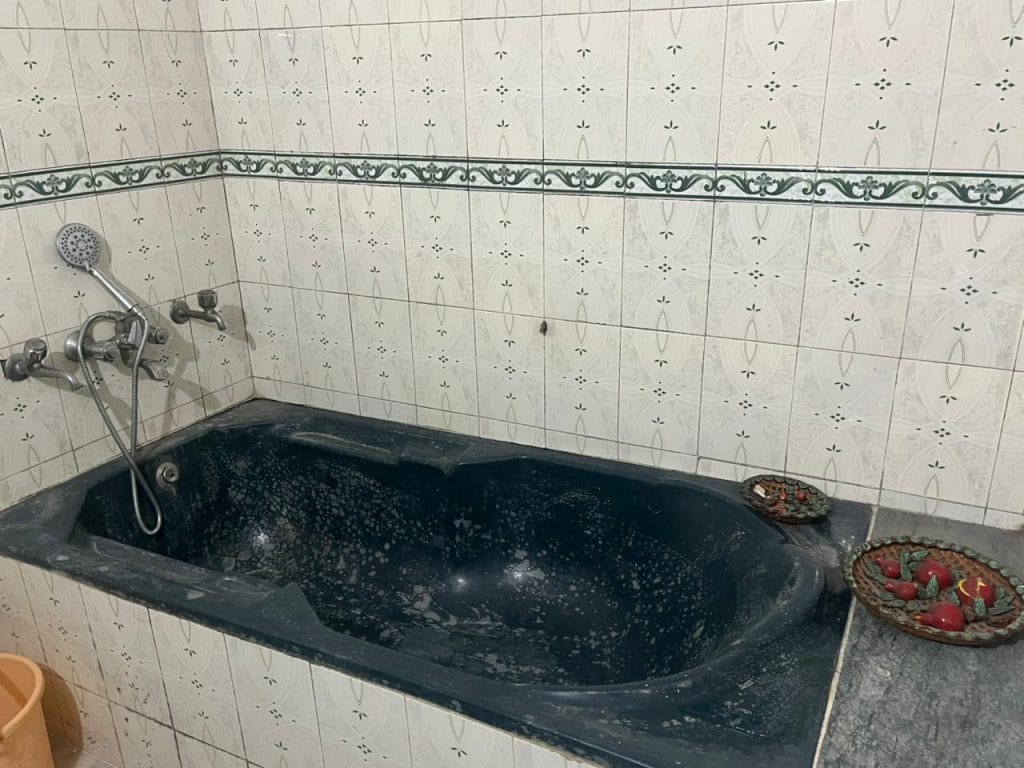
Delhi’s love motel map
Iterations of ‘Hotel Decent’ are everywhere in Delhi. Each caters to a different slice of the couples’ market, with varying degrees of lassitude depending on the neighbourhood.
Around Delhi University’s North Campus, where many young romances blossom, residential areas are full of PGs and student rentals but barely any hotels. What comes to the rescue for many couples in the campus and Model Town area is Hotel Red Chilly, just about 1.5 kilometres away from the GTB metro station.
“The most amazing thing about that hotel is that it is very comfortable. I heard about it from a friend who went there with his girlfriend. They have separate prices for weekdays and weekends,” said Sohit Bansal, a law student in Delhi University.
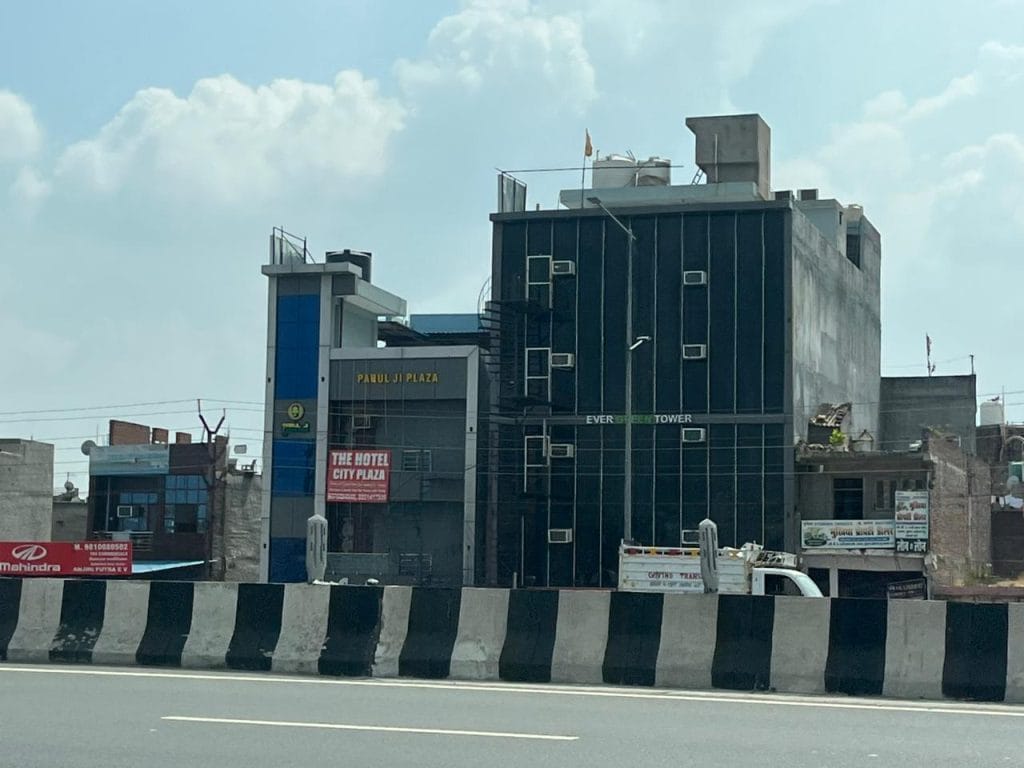
The hotel’s reviews on an aggregator site are full of feedback from posters in the ‘couples’ category. One praised its “subtle” service and “supportive staff”, another complained, “so many questions ask… am not feeling good.”
In residential colonies like Lajpat Nagar, the scrutiny also comes from neighbours, ranging from muttered insults at patrons to calls to the police if “immoral activity” is suspected.
“The fear of a fight or raid is always there,” said the manager of Hotel Comfort Inn in Lajpat Nagar. “People don’t like the idea of a hotel in their neighbourhood. Police can come anytime, even if we aren’t doing anything, which makes guests uncomfortable. But nobody cares about our problems—we’re villains in everyone’s eyes.”
Central Delhi’s Paharganj, however, is a different universe. Just behind New Delhi Railway Station, its warren of alleys has nearly 2,000 hotels — from cheap lodges to mid-range properties. Here, the couples who check in are barely noticed. The area’s freewheeling, backpacker culture and the constant churn of budget tourists make anonymity easy.
The fear of a fight or raid is always there. People don’t like the idea of a hotel in their neighbourhood. Police can come anytime, even if we aren’t doing anything, which makes guests uncomfortable. But nobody cares about our problems—we’re villains in everyone’s eyes
-Manager of Hotel Comfort Inn in Lajpat Nagar
Sahil Saini, the 28-year-old manager of City Inn, said 90 per cent of the hotel’s bookings come from couples — about 25 of them regulars.
“We are doing legal work. They are independent people. If they both are adults and have real IDs then we shouldn’t deny them a room. We have a licence and it gets renewed every year,” he said.
But no one is immune from the threat of a police case, whether it is ‘liberal’ Paharganj or ‘traditional’ Meerut.
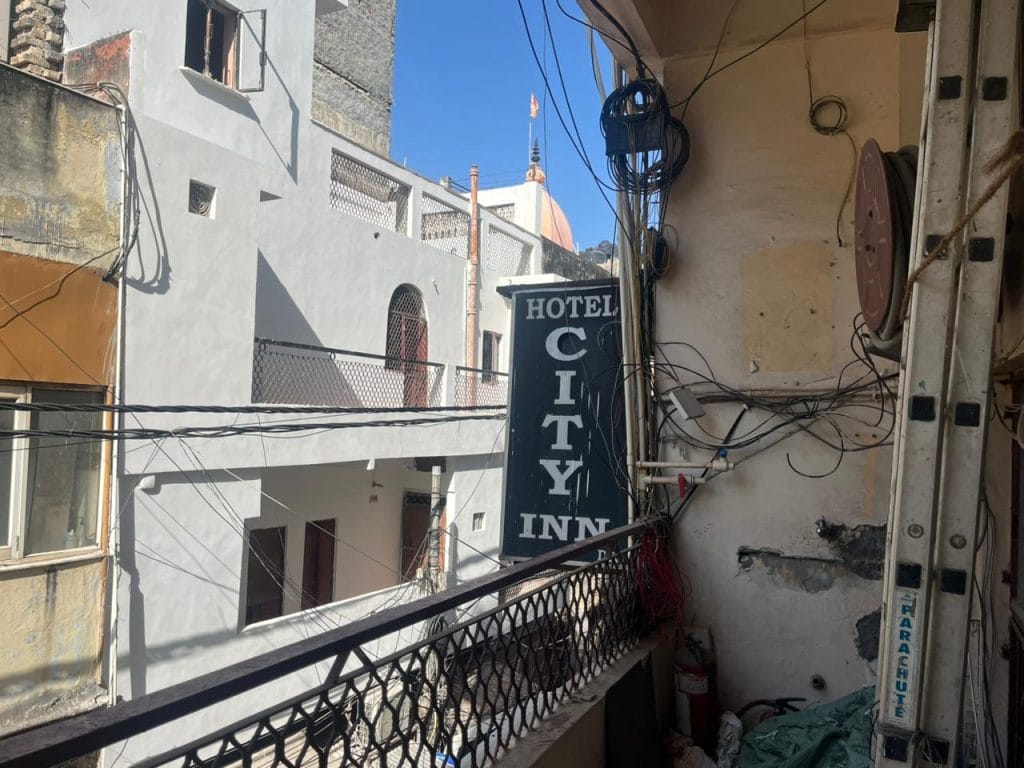
NOCs to OYO Meerut couple ban
Discretion has its limits, even at hotels that claim it’s their USP. Managers say they must put a face to every name, check IDs carefully, and ensure no legal—or religious—trouble flares up on their premises.
In Paharganj, City Inn’s Saini said due diligence is essential.
“Couples bring business, but we have to be extra careful. Many times, girls don’t show their real IDs, so we have to cross-check. Once I caught a girl using a fake ID and refused her a room,” he said.
Saini also discourages guests from trying to duck CCTV cameras in the reception and corridors.
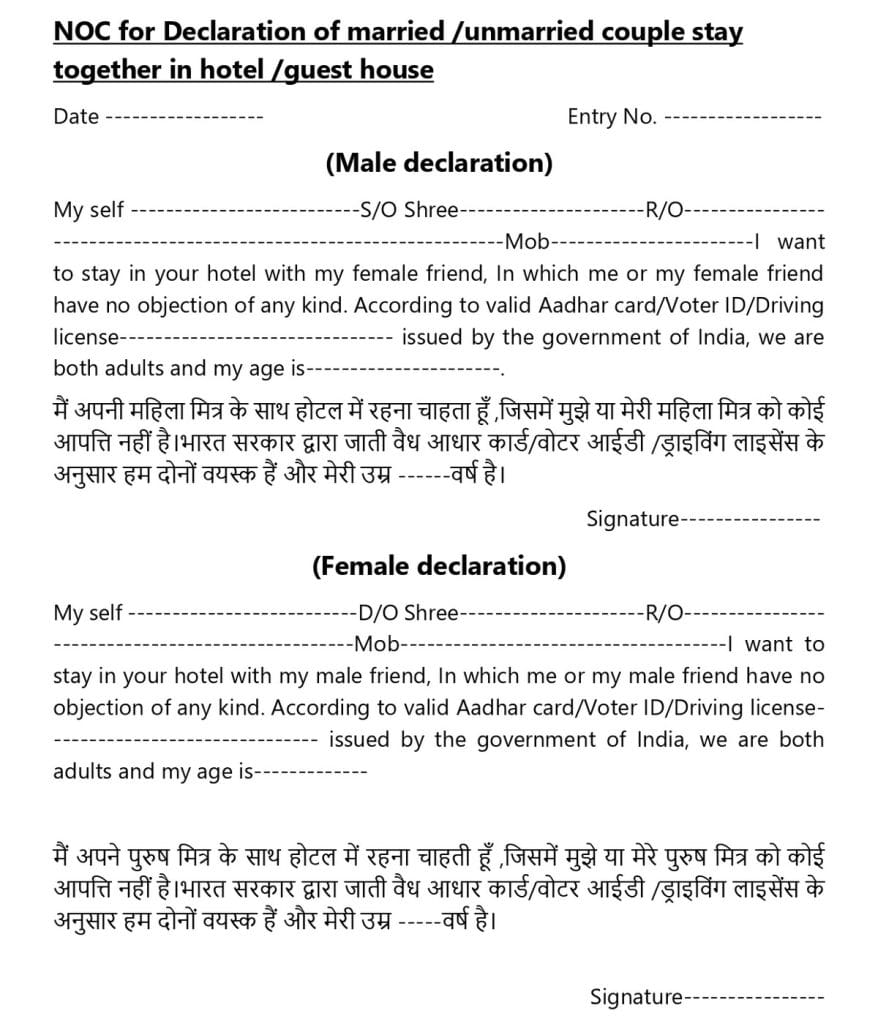
“We ask women to remove the mask, veil, or scarf so her face can be seen on the CCTV,” he added. “We also ask the girl to sign in the register. If police ask, we can prove she came of her own will.”
But for interfaith couples, even these precautions don’t always help. Many hotels refuse them outright; others demand extra paperwork.
“There’s a separate form for Hindu-Muslim couples, or for those who might raise doubts,” said Saini. “We ask both to fill it out just to show they came together willingly.”
The form is effectively a no-objection certificate titled “NOC for Declaration of married/unmarried couple stay together in hotel/guest house.” Both the man and the woman must give their name, age, father’s name, mobile number, and Aadhaar, voter ID or drivers’ licence number. Each signs a near-identical declaration. For women, it reads: “I want to stay in your hotel with my male friend, in which me or my male friend have no objection of any kind.”
Several other small hotels that ThePrint contacted in Delhi and Meerut also follow similar safeguards.
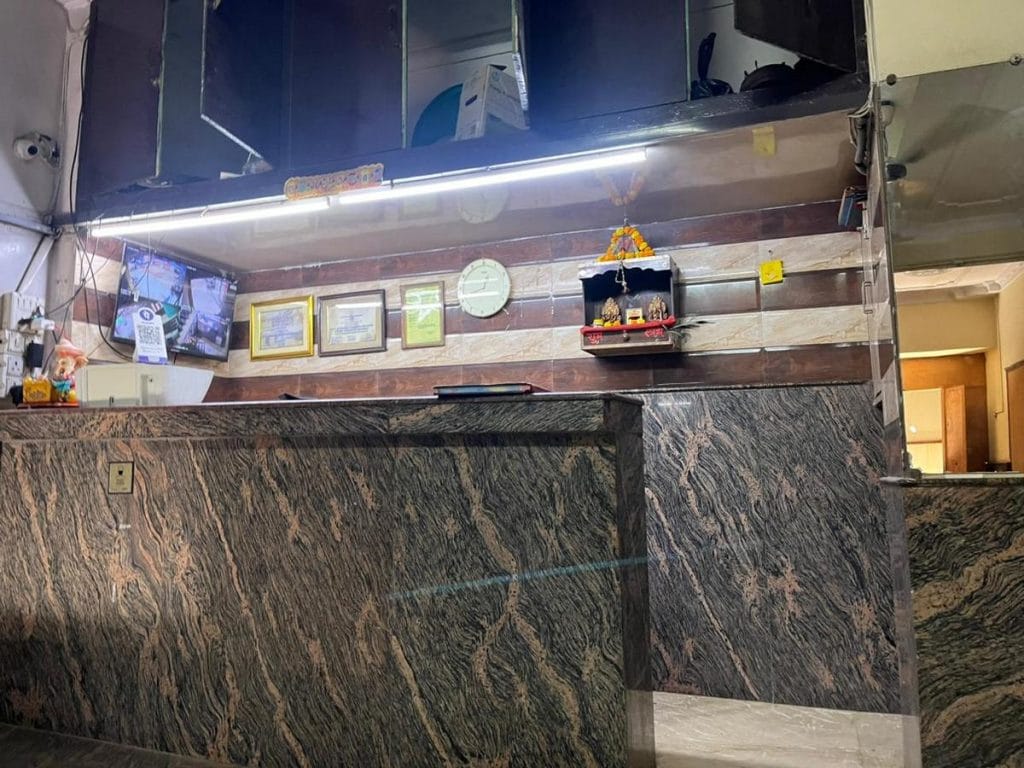
But some hotels that once welcomed couples have now deemed the risk too great. In January 2025, OYO, a franchise long known for its couple-friendly policy, issued a statement declaring that “unmarried couples will no longer be welcome to check in” at its hotels in Meerut. Couples were asked to show “valid proof of relationship” even for online bookings. The company said it might extend the rule “to more cities depending on ground feedback.”
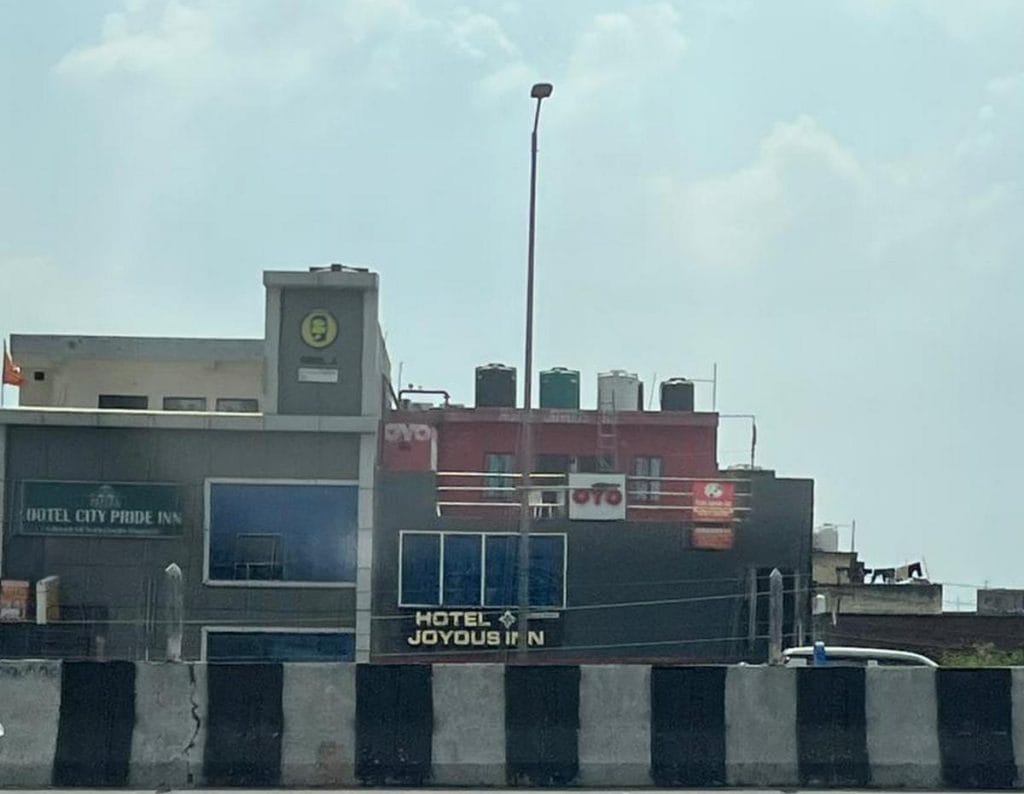
This change in policy followed a vocal local campaign against alleged “illegal activities” in budget hotels. Droves of women landed outside the district magistrate’s office to “deposit” their house keys. They said they could no longer live in colonies besmirched by ‘illicit’ hotels, including flats converted into lucrative love nests. Subsequently, a few hotels were inspected by the Meerut Development Authority and some were penalised for allegedly operating without authorisation.
“While we respect individual freedoms and personal liberty, we also recognise our responsibility to listen to and work with law enforcement and civil society groups in the micro markets we operate in,” said Pawas Sharma, region head, OYO North India.
We still give rooms to couples. It’s not on an hourly basis, minimum 24 hours — but we don’t deny them. If anyone has a problem, they should go to court. We occasionally witness opposition from the residents but we know we aren’t doing anything illegal
-Rahul, manager of Hotel Subhadra Residency in Meerut
The move was appreciated by some residents but was criticised by others, who called it regressive and likely to push couples toward unregulated spaces. “Obscenity will descend on roads, trains and parks,” warned one post on X, while another said, “At least Delhi is safe.”
A few Meerut hoteliers, however, publicly refused to change their policies unless there was a legal directive to do so.
“We still give rooms to couples. It’s not on an hourly basis, minimum 24 hours — but we don’t deny them,” said Rahul, manager of Hotel Subhadra Residency in Meerut. “If anyone has a problem, they should go to court. We occasionally witness opposition from the residents but we know we aren’t doing anything illegal.”
The neighbourhood gaze
Fifty-six-year-old Rekha Verma goes for an evening walk every day at 5 pm. Hotel Red Chilly comes on her route. She often sees couples checking out and it always upsets her. She’s never complained directly to the hotel but regularly discusses it with neighbours who share her disapproval. They agree the hotel brings disrepute to them all.
“Bad-character women come to such hotels. Hotels are benefiting from them, but the neighbourhood gets affected. We are reputed people and such things don’t look good. Our relatives also visit and notice these things,” said Verma.
We ask the girl to remove the scarf at the reception and deposit their IDs…We will go into losses with this. It’s just that you can’t stop couples. If not here, then they will find a place to rent somewhere else
-Manager of a budget hotel in Rajkot
Sometimes, family dramas unfold outside. Parents turn up looking for their children, occasionally with police in tow. As reported earlier by ThePrint, one-third of the rape cases tried by Delhi’s district courts in 2015 were filed by parents. In her 2023 book Whole Numbers and Half Truths, data journalist Rukmini S also noted that of the 475 Delhi sexual assault trials she studied in a year, about 200 were cases of parents criminalising consensual relationships, and around 120 were “breach of promise to marry”.
In Ghaziabad’s Navyug Market, residents have written to local leaders and authorities demanding that short-stay hotels be shuttered. But police say there’s no basis to do so.
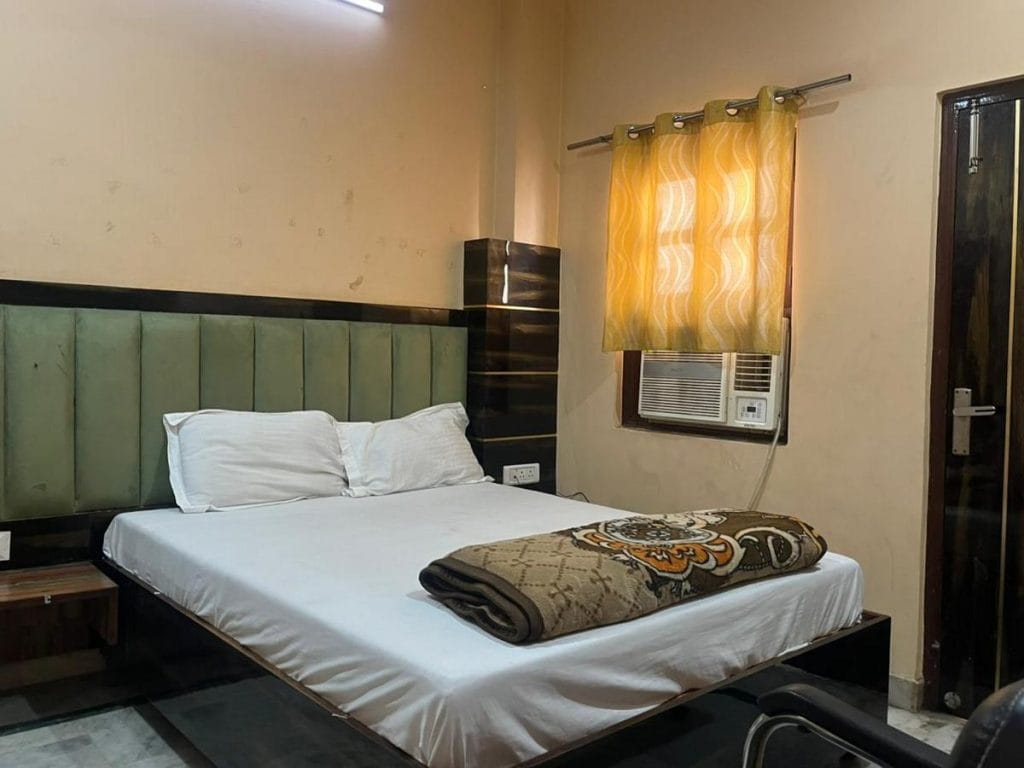
“We didn’t find anything unusual. There was a fight that got resolved. The hotel has a licence, and if we find anything problematic, we will take action,” said the investigating officer at Kotwali Police station on condition of anonymity.
In Lajpat Nagar and Shahdara, most residents haven’t raised objections, but nearby shopkeepers are disgruntled.
“Families come to our shops with their children. It gives a bad impression,” said Mahender Kumar, who owns a utensil store in Lajpat Nagar. “Couples come here holding hands, touching each other. It doesn’t look decent. What’s the need for a hotel in a market anyway?”
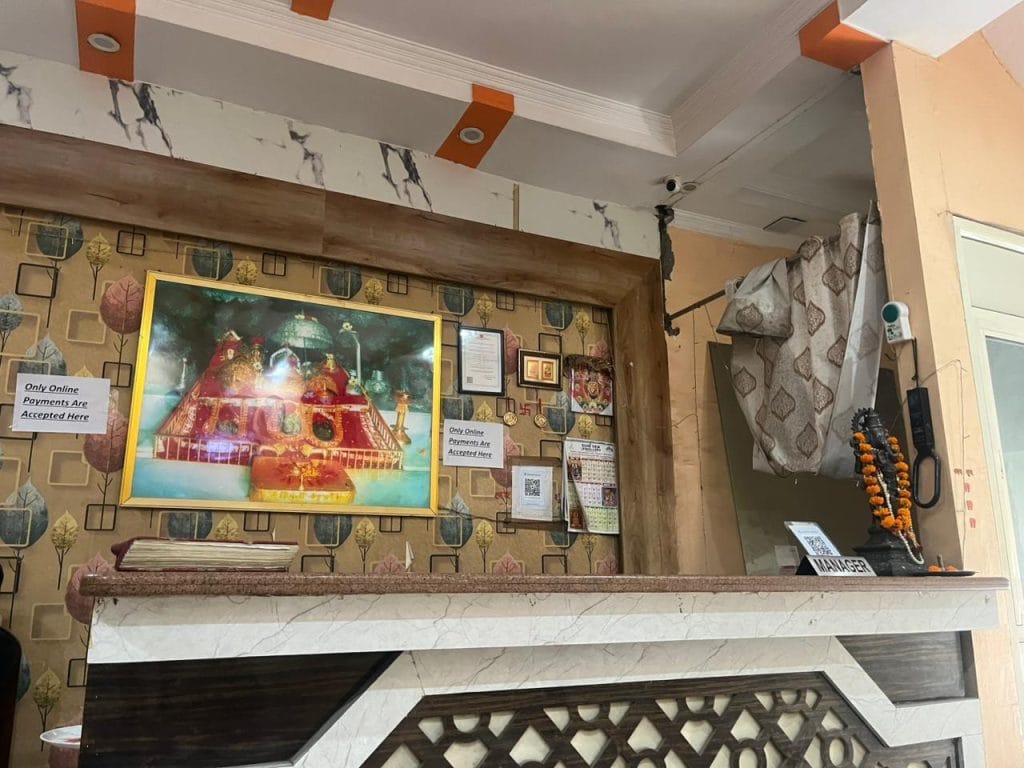
Also Read: From child protection to ‘moral policing’ tool: How POCSO Act is leaving courts conflicted
Love finds a way, Rajkot to Ghaziabad
Rajkot’s short-stay hotels are the newest casualties of the “decency” debate. Panic over “underage girls” has meant all unmarried couples now have fewer places to find privacy.
In September, the Rajkot Zone-2 Deputy Commissioner of Police (DCP) issued orders that hotels in the A-Division area must stop offering rooms by the hour to young couples. Rooms are also off limits to couples where both have a Rajkot address. Hotels must now register every guest via Pathik software and match faces to Aadhaar cards. If a girl is suspected to be a minor, hotels have been instructed to call police immediately. Gujarat Samachar reported it as “a bid to curb the sexual exploitation of young women”.
We are not doing anything illegal, but one angry crowd is enough to empty out a hotel
-Deepak, manager of Hotel Metro in Ghaziabad
Consenting adults are collateral damage, as are the hotels catering to them.
“We will go into losses with this. Since this news, we aren’t getting many bookings from couples,” said the manager of a budget hotel in the city, speaking on condition of anonymity. “We are following these guidelines. We ask the girl to remove the scarf at the reception and deposit their IDs. It’s just that you can’t stop couples. If not here, then they will find a place to rent somewhere else.”
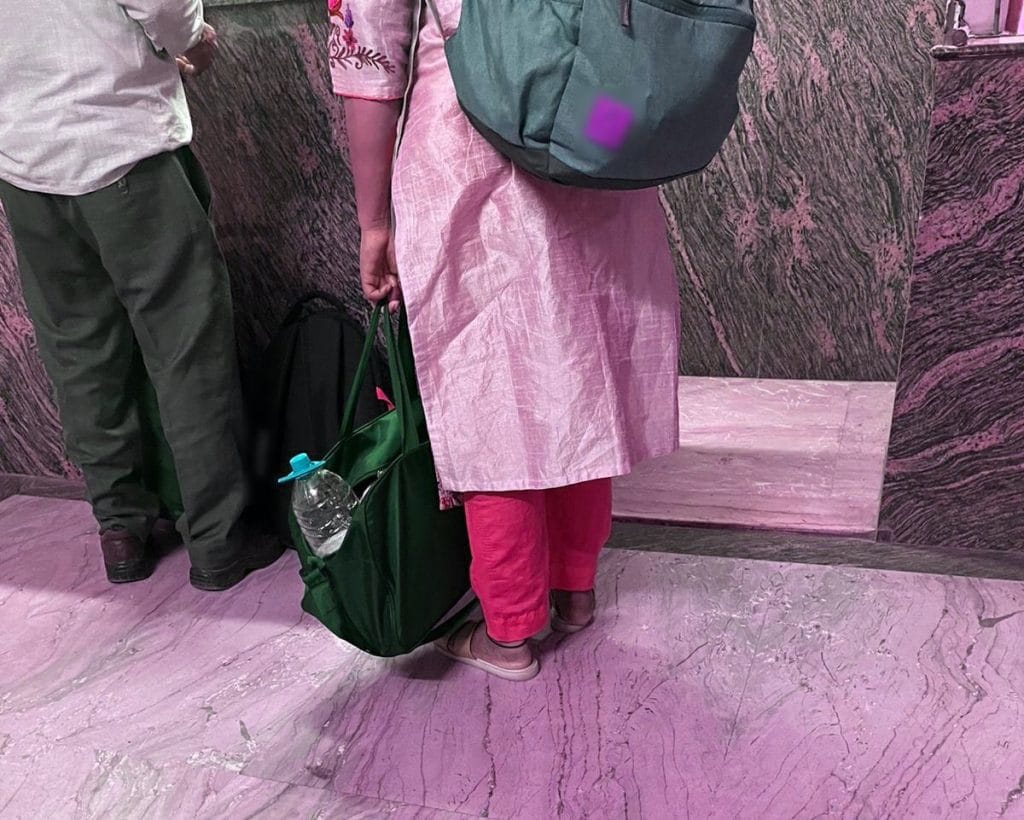
Despite the clampdown, Rajkot’s “couple-friendly” listings are still easy to find online. A quick search on Justdial or booking sites throws up Hotel Empire, Hotel Ayodhya, Hotel City Palace, Blue Leaf, Glory Hotel, Hotel Green, and Hotel Nova Bliss, with rates ranging from a few hundred rupees to around Rs 2,000 a night.
Three weeks after the Navyug Market raid, Hotel Metro’s corridors are more silent than usual, barring one couple, the woman with her face covered. Manager Deepak says only a handful of bookings have come in since the mob attack.
“The old manager quit because of the pressure, and now even regular customers are scared to come,” he said. “We are not doing anything illegal, but one angry crowd is enough to empty out a hotel.”
(Edited by Asavari Singh)



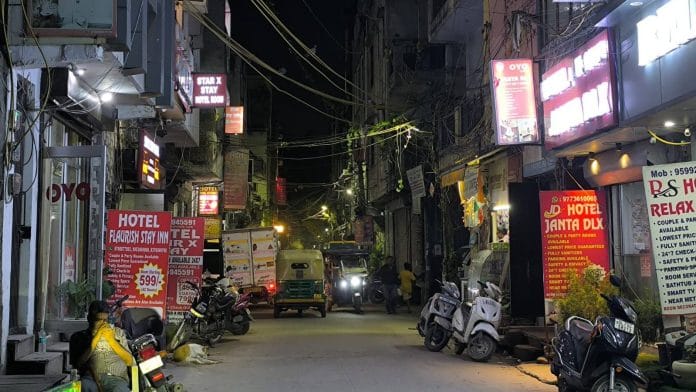



Interesting! “New sex culture”. Does it deserve to be a “culture” really? Do the couples have to be physically engaged to know each other well? Physical engagement can lead to kids, and when this so-called new “culture” makes it a new normal, then the usual “responsibility” towards the kids are gone. Who will be responsible for that?
I would suggest people not go to “cheap” hotels for such activities. Pick a better place or you can face problems which is unfortunate but is the reality. Location matters.